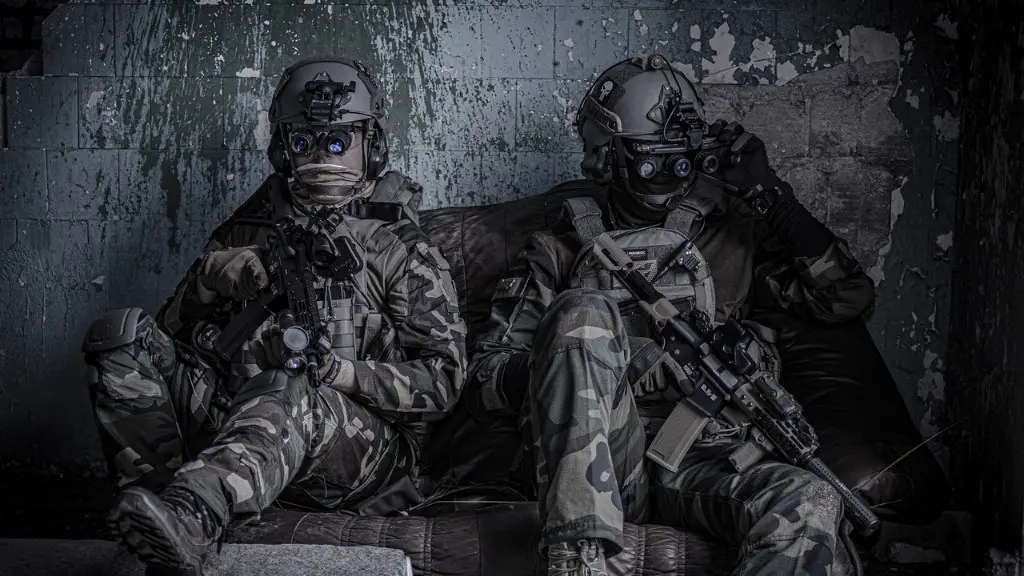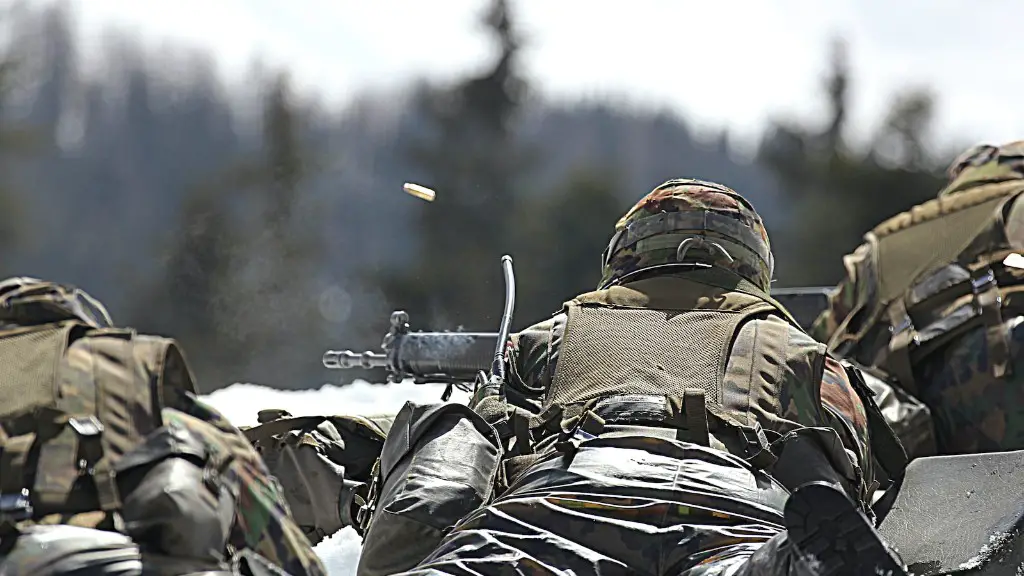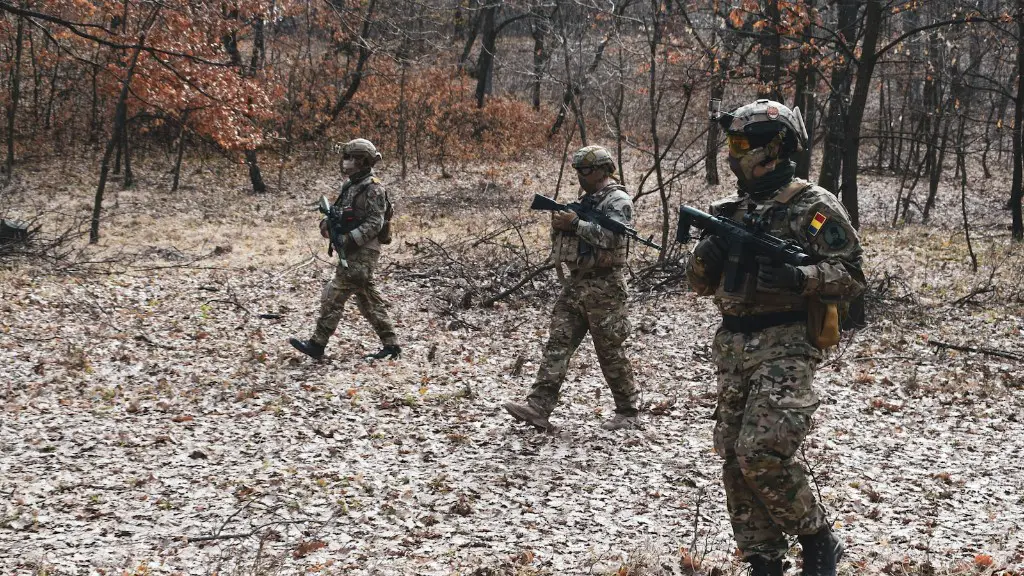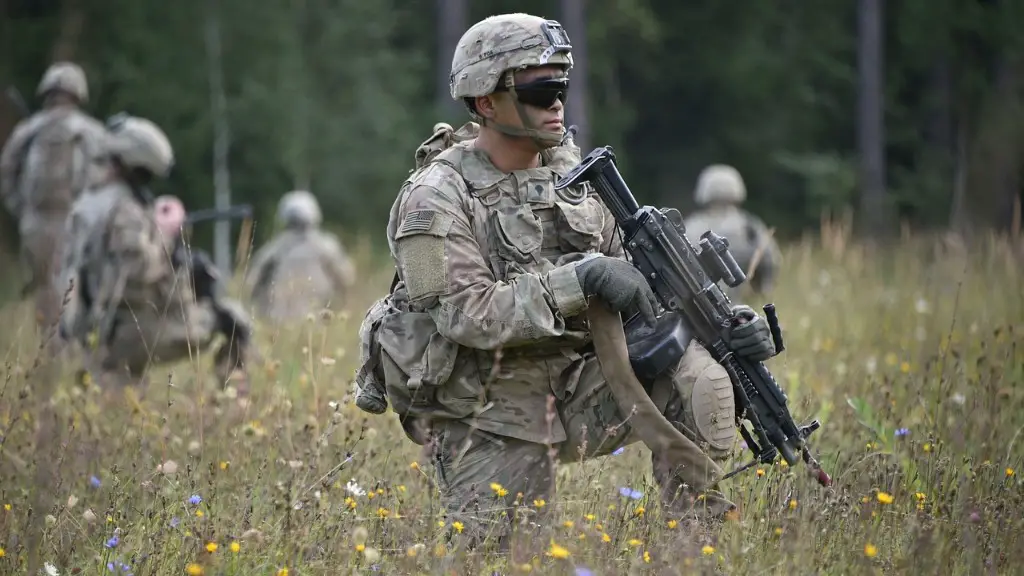Since China’s founding in 1949, women have been excluded from active infantry service in the Chinese People’s Liberation Army (PLA). However, while a gender discrimination policy in the PLA was implemented in the 1950s, women continue to serve in the Chinese military in various ways. In a 2006 survey by the All-China Women’s Federation in Beijing, women served mostly in administrative personnel, medical personnel, technical maintenance personnel, and communications personnel roles, and served throughout all levels of the PLA chain of command.
In recent decades, females have been increasingly active in military roles, including flying helicopters and taking part in army parades. More recently, in 2016, female soldiers from a PLA airborne special operations brigade were reported to have completed short-range airborne jumps as part of a training exercise. In addition, in 2020, a female Chinese officer was promoted to the rank of major general.
Despite these advancements, female Chinese soldiers still face numerous challenges. In addition to being excluded from certain infantry and artillery roles, Chinese women in the military often experience sexism, discrimination, and other forms of gender-based violence. Female soldiers also receive fewer promotions and opportunities for career advancement than their male counterparts. Furthermore, since women are more likely to have children, they are often assigned to less demanding roles or have to leave their military posts early.
On a more positive note, some changes are underway. In 2017, China passed a new law that makes it easier for women to enlist in the military and promotes gender equality in the PLA. The law removes gender-based restrictions in military recruitment, requires that military housing and other provisions are equally provided to female soldiers, and stipulates that promotions for female military personnel are based on meritocracy. Furthermore, Chinese military academies have carried out gender-equality education campaigns, which included inviting female veterans and academics to speak to female students.
Still, there are many challenges that remain to be addressed in order for women to achieve full equality in the Chinese military. In order for Chinese female soldiers to truly benefit from the new law, military leaders must ensure that the law is implemented properly. Moreover, the gender gap must be addressed from the top down in order to reduce discrimination and create a more equitable environment for women in the military. The Chinese government must continue to make an effort to promote gender-equality in the PLA and support female soldiers to speak up and demand equal respect and opportunities.
Social Change In The Chinese Military
In recent years, there have been some positive changes in the Chinese military in terms of gender equality. In 2017, a new policy, known as the “Gender Equality in Military Recruitment Regulations,” abolished the practice of recruiting only male soldiers and made it easier for women to join the military. According to the policy, women now have equal access to military training, recruitment, and job opportunities.
Furthermore, the policy also stipulates that military housing and other provisions should be equally provided to women. This law provides female Chinese soldiers with more advantages and protection in the military. For example, it allows female military personnel to get married without needing to resign, which was previously the case.
The new law also requires that promotions for female military personnel are based on meritocracy, rather than gender. This law helps to close the gender gap in the military and encourages more female participation in the military.
Moreover, the law also encourages gender-equality education in military academies. Female veterans are now invited to speak at military academies to give insight into what it is like to serve in the military, and academics are also invited to explain the importance of gender equality.
Barriers That Women In The Military Face
Despite the recent progress, there are still a number of issues that female Chinese soldiers face when trying to join and serve in the military. In addition to facing discrimination and sexism, women are often refused roles in infantry or artillery roles, which restrict their opportunities for promotion.
Furthermore, women are more likely to have children and therefore face challenges in terms of balancing family life with their military role. Women are often assigned to less demanding roles or have to leave their military posts early in order to look after their children.
Moreover, women are also subjected to military sexual harassment and other forms of gender-based violence, which can make it difficult for them to stay in the military. Despite the new laws, such issues persist and need to be addressed in order for women to achieve full equality in the military.
Government Efforts To Promote Gender Equality
To promote gender equality in the Chinese military, the government has taken a number of steps. In 2020, the Central Military Commission (CMC) issued a policy on gender equality, which stipulates that “all military personnel must treat men and women equally in terms of material benefits, career development and promotion opportunities.”
The CMC also instituted a gender awareness campaign for military personnel and highlighted the importance of respecting women as “warriors and creators” on the battlefield. In addition, in July 2020, the PLA launched the first ever female cadet training program at the Nanjing Military Academy, which was aimed at improving the representation of women in the military.
Moreover, in order to increase female representation in the military, the Chinese government has implemented various policies, such as reserving 10% of officer positions for women and increasing the recruitment of women. This has helped to improve the recruitment of female soldiers, who now make up 22% of the Chinese military.
Positive Impact On The Chinese Military
The Chinese government’s efforts to promote gender equality in the military have had a positive impact on the PLA. Female military personnel bring different perspectives and experiences to the battlefield, which can help improve operational performance.
Moreover, research has shown that when women are included in the military, the unit’s operational performance and morale increases. Studies also show that when women are leaders in the military, they are more likely to take a holistic approach to leadership and show greater concern for the welfare of their troops.
Furthermore, there are economic benefits of gender equality in the military. Female soldiers bring more diversity of skills and capabilities to the military, which can help to reduce costs. Additionally, by promoting gender equality in the military, the government can attract more talented individuals and help to make the PLA more competitive.
Future Challenges
In order for women to achieve full equality in the Chinese military, there are still a number of challenges that need to be addressed. Currently, despite the new laws, military leaders are still struggling to ensure that the laws are implemented properly and that female soldiers are given equal opportunities. Moreover, gender discrimination and other forms of gender-based violence are still prevalent in the military, and these issues need to be addressed in order to create a more equitable environment.
Furthermore, the acceptance of female military personnel needs to be increased in order to improve the general public’s perception of women in the military. This can be achieved through increased education and awareness-raising campaigns that emphasize the importance of gender equality in the military.
Lastly, in order to create an equal and inclusive environment, the military must continue to invest in female leaders and provide them with the necessary resources and training to succeed. The promotion of female staff to senior military and leadership positions is essential in order to create a more balanced and equitable military.





